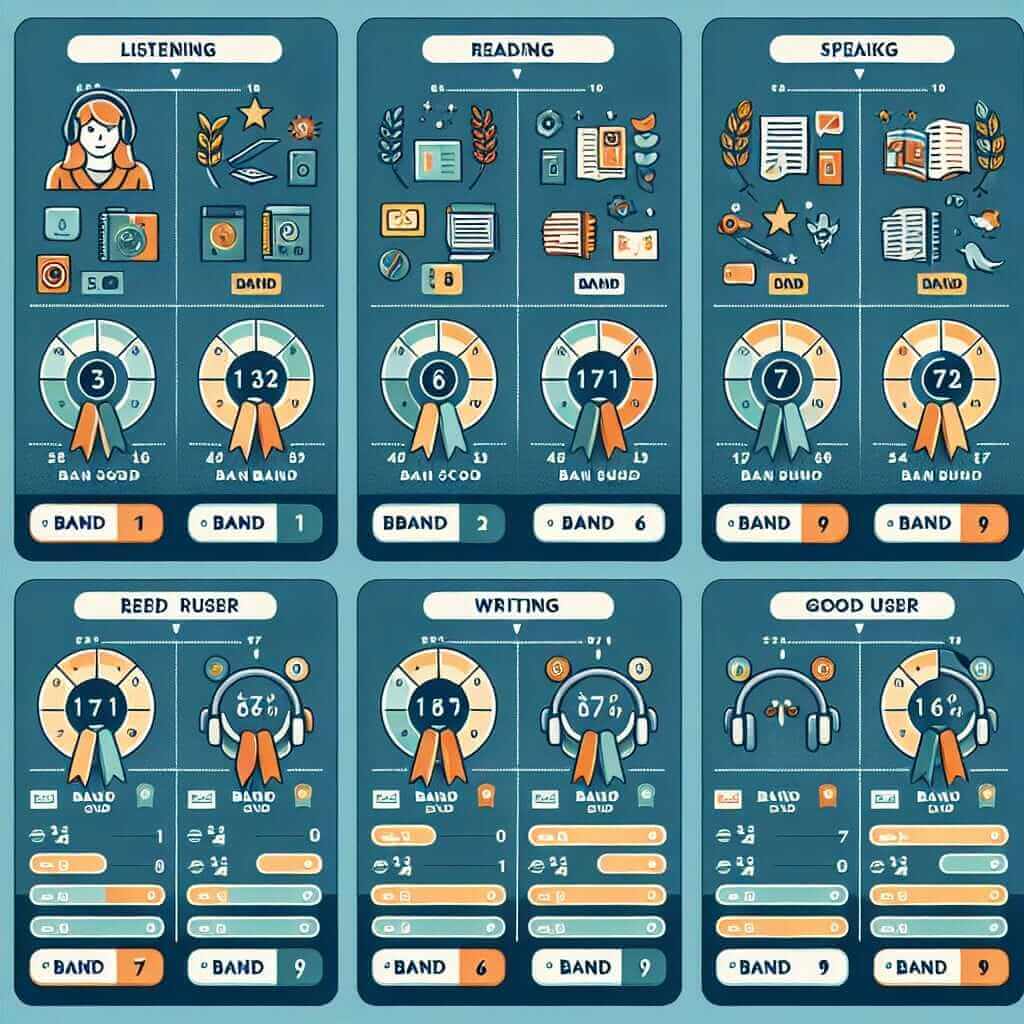The Challenge of Reaching Band 7
Achieving a band score of 6.5 in the IELTS exam demonstrates a good grasp of English, but reaching that coveted band 7 requires a significant step up. It’s a common hurdle for many test-takers, and I’ve seen this firsthand in my 20+ years of experience teaching IELTS. A 7 signifies you’re a ‘good user’ of English, capable of handling complex language and communicating effectively. This level of proficiency is often required for university admission or professional registration.
Pinpointing Areas for Improvement
Moving from a 6.5 to a 7 is less about learning entirely new concepts and more about refining your existing skills. Let’s break down the key areas you need to focus on:
1. Lexical Resource (Vocabulary)
- Knowing a Wider Range of Words: At band 7, you need to go beyond basic vocabulary and utilize less common words appropriately. It’s not just about using big words but using the right words to convey your ideas precisely.
- Collocations and Idioms: Demonstrate your natural grasp of English by incorporating collocations (words that naturally go together) and idioms (figurative expressions).
- Avoiding Repetition: Examiners look for variety in your language. Use synonyms and paraphrasing techniques to express the same idea in different ways.
2. Grammatical Range and Accuracy
- Complex Sentence Structures: Band 7 requires confident use of a wider range of grammatical structures. This includes using complex sentences with multiple clauses (e.g., relative clauses, conditional clauses) accurately.
- Error Reduction: While occasional minor errors are acceptable, they should not hinder understanding. Focus on consistent accuracy in areas like verb tenses, subject-verb agreement, and article usage.
3. Coherence and Cohesion
- Clear and Logical Organization: Your ideas should flow smoothly and logically. Use clear topic sentences, linking words (e.g., however, furthermore, consequently), and cohesive devices to guide the reader.
- Paragraphing: Break down your writing and speaking into well-structured paragraphs with a clear central idea in each.
4. Fluency and Pronunciation (Speaking)
- Speaking Without Hesitation: Aim for a natural flow of speech with minimal pauses or self-correction. Practice speaking spontaneously on various topics to build fluency.
- Pronunciation and Intonation: Ensure your pronunciation is clear and understandable. Pay attention to intonation (the rise and fall of your voice) to convey meaning effectively.
Applying the Strategies: Examples from IELTS
Let’s look at how these areas come into play in the IELTS exam:
Writing Task 2:
- Topic: “Some people believe that children should have mobile phones. Others argue that this is not necessary. Discuss both views and give your opinion.”
- Band 6.5 Response: “Mobile phones are very common now. Some think children need them, but others think it’s not good. I think…”
- Band 7 Response: “The ubiquity of mobile phones has sparked debate about their suitability for children. While some advocate for their use, citing benefits such as enhanced communication, others contend that…”
Notice the improved vocabulary, complex sentence structures, and clear organization in the band 7 response.
Speaking Part 2:
- Topic: “Describe a time you had to use your communication skills to solve a problem.”
- Band 6.5 Response: “Umm… there was this one time… I think it was at work… and there was a problem… I talked to my colleague, and we fixed it.”
- Band 7 Response: “I recall a particularly challenging situation at work where a misunderstanding with a client threatened to derail a major project. Recognizing the need for clear communication, I arranged a meeting to address the issue directly…”
The band 7 response demonstrates fluency, a wider range of vocabulary, and better storytelling.

Tips to Boost Your Score:
- Targeted Practice: Focus your practice on your weaker areas. If vocabulary is a challenge, dedicate time to learning new words and using them in context.
- Mock Tests: Regularly take full mock tests under timed conditions to simulate the exam experience and identify areas for improvement.
- Feedback is Crucial: Seek feedback from experienced IELTS tutors or teachers to get personalized advice on your strengths and weaknesses.
- Immerse Yourself in English: Surround yourself with the language as much as possible. Read English books and articles, watch movies and TV shows, and listen to podcasts.
Conclusion
Moving from a 6.5 to a 7 in IELTS requires focused effort and a strategic approach. By honing your vocabulary, grammar, coherence, and fluency, you can confidently demonstrate the language proficiency needed to achieve your desired score. Remember, consistent practice, effective feedback, and a genuine passion for language learning are your keys to success. Good luck!